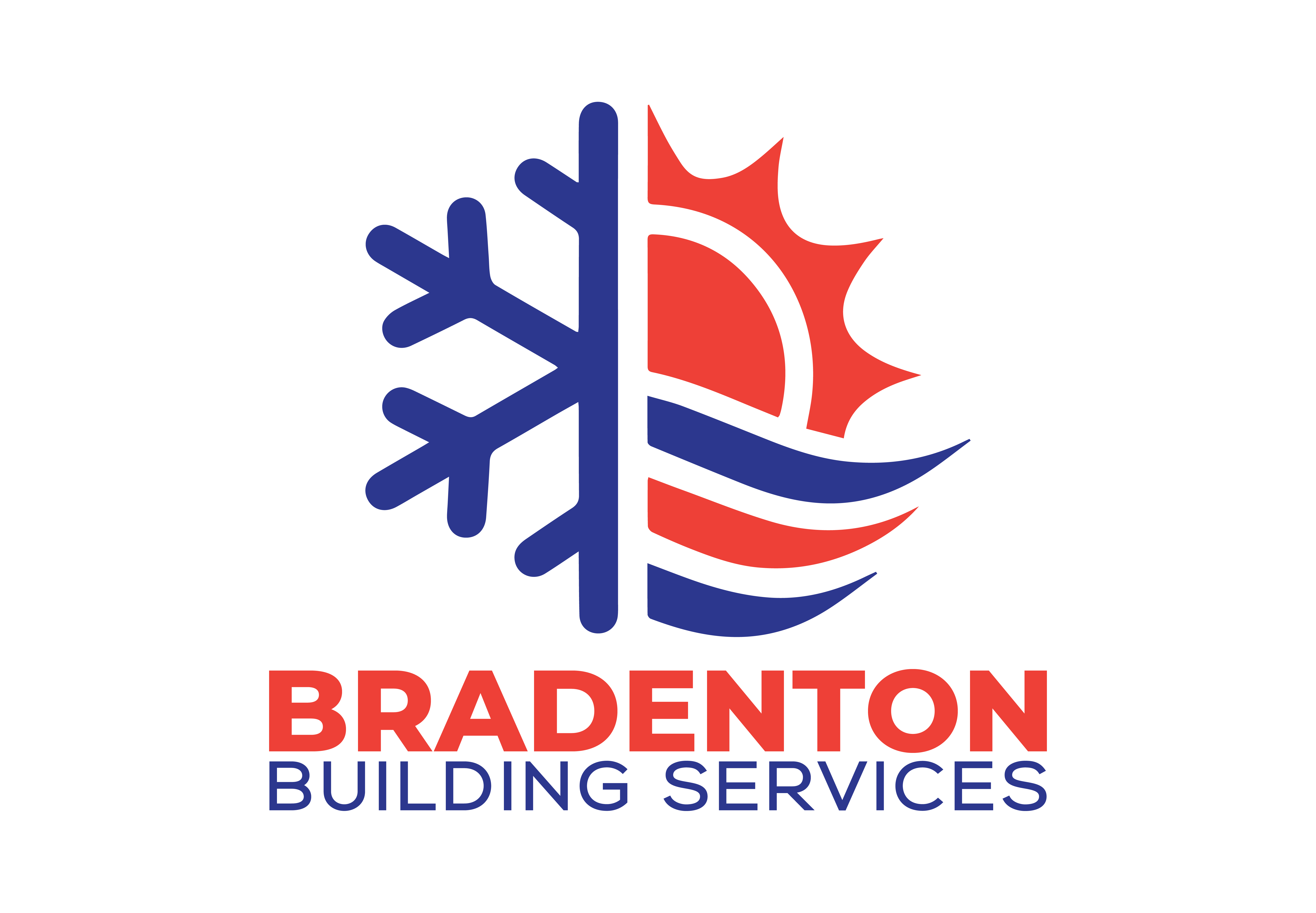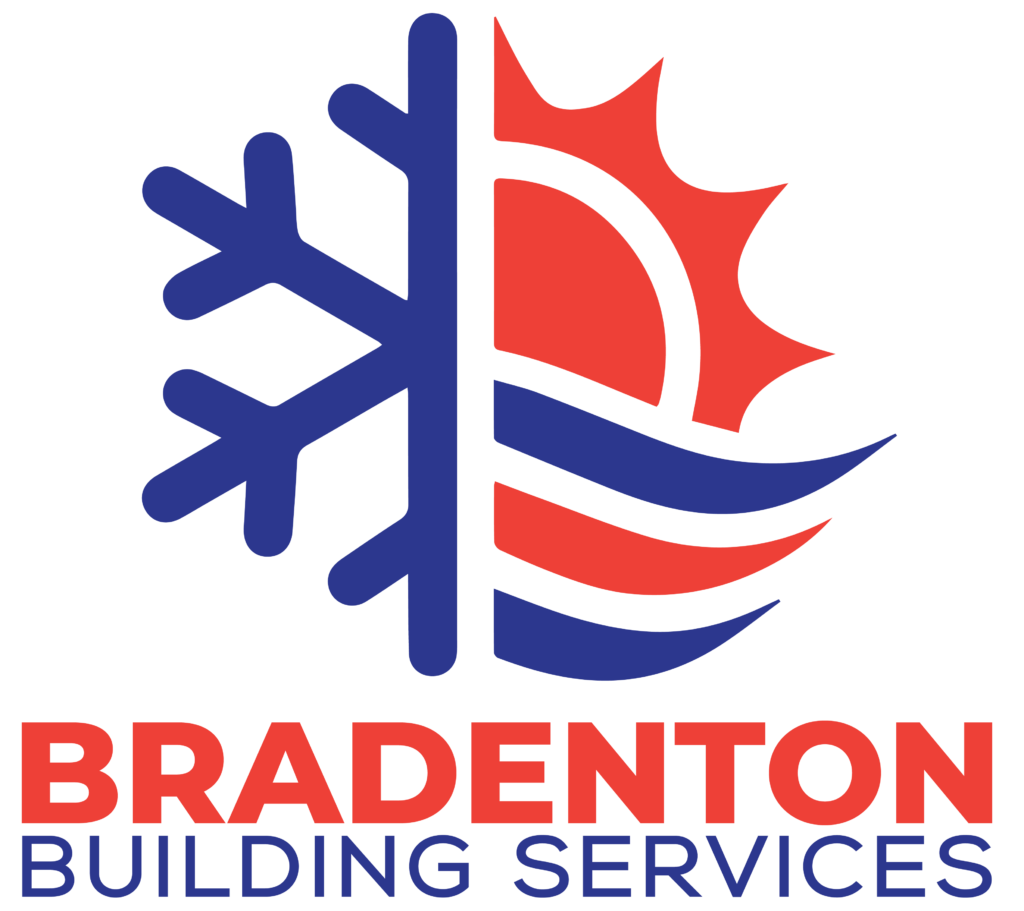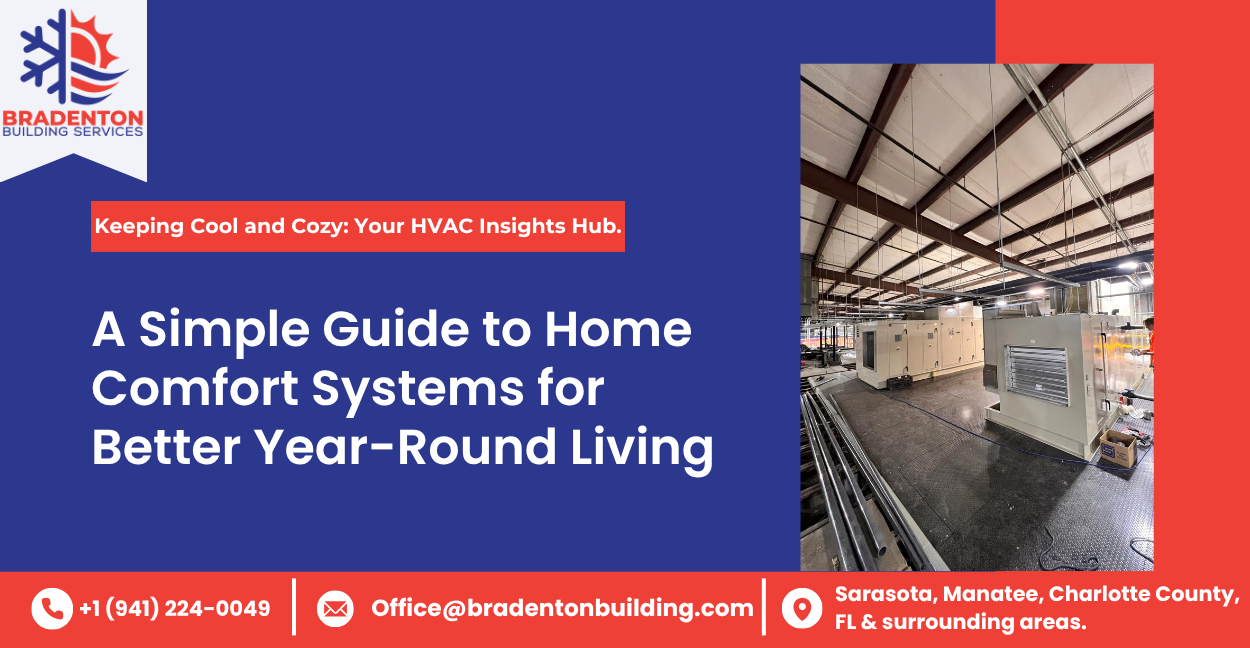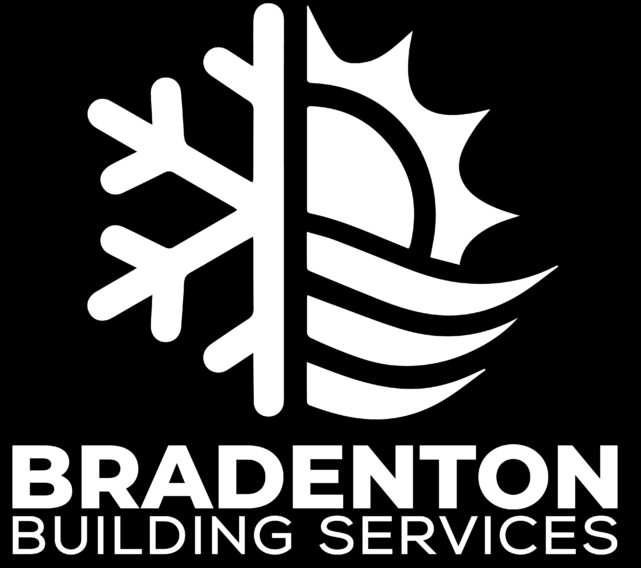When it comes to creating a comfortable home environment, nothing is more important than a reliable home comfort system. These systems are designed to regulate temperature, humidity, and air quality, ensuring your home remains a pleasant place to live throughout the year, regardless of the weather outside. Home comfort systems typically include HVAC (Heating, Ventilation, and Air Conditioning) systems, air conditioning units, heating systems, and air purification systems. Whether it’s the dead of winter or the height of summer, having a home comfort system in place is essential for maintaining a balanced indoor environment. In this article, we’ll explore the various types of home comfort systems, their benefits, and how you can choose the best one for your home.
Understanding Home Comfort Systems
Home comfort systems work as the backbone of maintaining a comfortable indoor climate. But how exactly do they function?
At the core of home comfort systems are systems that control your home’s temperature and air quality. HVAC systems are the most common type, offering heating, cooling, and ventilation. However, individual units like air conditioning systems and heating systems (e.g., furnaces) are also integral to maintaining home comfort.
Each type of system serves a different purpose, and choosing the right one depends on your specific needs. Some systems may be more energy-efficient or better suited for specific home sizes, so it’s important to know your options before making a decision.
The Key Benefits of Home Comfort Systems
Investing in a home comfort system comes with a host of benefits that improve your living experience. Here are the five most important benefits to keep in mind:
1.) Energy Efficiency
One of the main reasons homeowners opt for modern home comfort systems is their energy efficiency. Older systems are often inefficient, leading to higher energy bills and environmental strain. Modern systems are designed to use less energy while providing better performance. Features like programmable thermostats and zoned systems allow you to control temperatures in specific areas, further reducing energy consumption. These energy-efficient units also reduce wear and tear, extending their lifespan, which can lead to significant savings in the long run.
2.) Consistent Temperature Control
Maintaining a consistent temperature is key to ensuring comfort in your home. Fluctuating temperatures can disrupt your daily tasks, sleep, and overall relaxation. HVAC systems are designed to keep indoor temperatures stable, regardless of the weather outside, especially in areas with extreme seasonal changes. This consistency helps protect sensitive materials in your home, such as wood furniture and electronics, which can degrade in fluctuating environments.
3.) Improved Air Quality
Home comfort systems improve air quality by trapping dust, allergens, and other pollutants. This is especially beneficial for people with allergies or respiratory issues, as it reduces airborne contaminants. Regularly changing air filters and maintaining your system are essential for keeping air quality high. Advanced air purifiers and dehumidifiers can further enhance the air by reducing moisture that promotes mold growth, creating a healthier indoor environment.
4.) Noise Reduction
Modern comfort systems operate more quietly than older units, making it easier to relax and focus in your home. Older systems often produced disruptive sounds, such as the hum of an air conditioner or the rumble of a furnace. Newer models are much quieter, thanks to improved technology and insulation, making them ideal for noise-sensitive spaces like bedrooms or home offices. The reduced noise creates a more peaceful living environment.
5.) Smart Technology Integration
Smart technology has made home comfort systems more efficient and convenient. Many systems now feature smart thermostats and sensors that allow remote temperature control through apps or voice commands. These devices learn your preferences over time and adjust settings based on your schedule. By integrating your system with other smart devices, you can manage your home environment more easily, optimize energy use, and enhance overall comfort.
How to Choose the Right Home Comfort System
Choosing the right home comfort system depends on a variety of factors, including your budget, the size of your home, and your specific comfort needs. Here are some considerations to help you make the best choice:
1.) Home Size and Layout
The size of your home plays a crucial role in determining the type of comfort system you need. Larger homes require more powerful systems to ensure that every room is evenly heated or cooled. If your home has multiple levels or open floor plans, a multi-zone HVAC system might be the best solution to ensure that each space is comfortably regulated. For smaller homes, more compact systems, such as ductless mini-split systems or smaller HVAC units, may be sufficient. It’s important to choose a system that matches the square footage and layout of your home. Installing a system that’s too small may result in insufficient heating or cooling, while a system that’s too large can lead to energy inefficiency and higher operating costs. An HVAC professional can help you assess your home’s needs and recommend the right system to provide optimal comfort.
2.) Budget
Your budget will have a significant impact on the type of system you choose. While high-efficiency systems may come with a higher initial cost, they can result in substantial savings over time due to reduced energy consumption. It’s important to weigh both the upfront installation costs and the long-term operational costs when making your decision. When budgeting, don’t forget to factor in maintenance costs, as regular inspections and servicing are essential to keeping the system running smoothly. If you’re working with a limited budget, you may want to consider financing options or look for energy-efficient models that offer rebates or tax incentives. Additionally, a well-maintained system will last longer, so investing in a quality system initially can save you money on repairs and replacements down the road.
3.) Climate Considerations
When selecting a home comfort system, it’s essential to consider your local climate. Homes in regions with cold winters will require a reliable heating system, such as a furnace or heat pump, to keep indoor temperatures comfortable. Conversely, homes in warmer climates will benefit from efficient cooling systems like air conditioners or evaporative coolers. For regions that experience both extremes, an all-in-one HVAC system that provides both heating and cooling can offer year-round comfort. In areas with high humidity, a dehumidifier may also be necessary to improve air quality and reduce discomfort. Understanding your local climate conditions will help you choose a system that can handle the specific weather challenges you face, ensuring your home remains comfortable no matter the season.
Ready to improve your home’s comfort? Contact us for expert HVAC solutions or explore our full range of services at Bradenton Building Services!
Maintenance and Care for Your Home Comfort System
To ensure your home comfort system continues to work efficiently, regular maintenance is necessary. Here are some essential maintenance tasks that can extend the lifespan of your system and keep it running smoothly:
1.) Regular Inspections and Cleaning
Regular cleaning and inspection of your home comfort system are crucial for maintaining its efficiency. Over time, dust and debris can accumulate in your filters, ducts, and coils, reducing airflow and causing the system to work harder. Air filters should be replaced every few months to ensure optimal performance. Additionally, ducts should be cleaned annually to prevent the buildup of allergens and dust. Checking for any signs of wear, such as unusual noises or leaks, can help you address potential issues before they lead to costly repairs. Regular maintenance not only keeps your system running smoothly but also ensures that it’s providing the best air quality and energy efficiency.
2.) Professional Maintenance
While some maintenance tasks can be done by homeowners, it’s important to have your system professionally serviced at least once a year. Professional technicians are trained to identify and repair issues that may not be obvious to the untrained eye. They can inspect the system’s components, clean parts that are difficult to access, and ensure that everything is functioning properly. Regular professional maintenance can prevent major breakdowns and extend the lifespan of your system. A technician can also check for any safety concerns, such as gas leaks in heating systems, ensuring that your home remains safe and comfortable year-round.
3.) Smart Home Integration
Smart home integration offers a wide range of benefits for your home comfort system. Many modern systems allow you to control temperature, humidity, and air quality remotely, giving you complete control over your home environment. Through smartphone apps or voice commands, you can adjust settings based on your preferences, even when you’re not at home. Smart systems can also learn your routines, automatically adjusting to your desired comfort levels at the right times. Additionally, smart integration can provide real-time monitoring, helping you track energy usage and identify opportunities to save on your utility bills. By adding smart technology to your comfort system, you enhance both convenience and efficiency, making it easier to manage your home’s climate and improve its overall performance.
Frequently Asked Questions
1.) How often should I service my HVAC system?
You should have your HVAC system serviced at least once a year, ideally before the heating or cooling season starts. Regular servicing helps identify potential issues early, improving system performance and efficiency. Preventative maintenance, such as cleaning filters and checking refrigerant levels, ensures the system operates smoothly and reduces the chances of costly repairs.
2.) How can I improve the energy efficiency of my home comfort system?
To boost energy efficiency, consider upgrading to Energy Star-rated models that are more energy-efficient than older units. Additionally, sealing gaps in windows and doors prevents air leaks, and using programmable thermostats allows for better control of your home’s temperature. Routine maintenance, including cleaning coils and replacing air filters, can also enhance performance and reduce energy consumption.
3.) What is the lifespan of a home comfort system?
The lifespan of a typical HVAC system ranges between 10 to 20 years, with regular maintenance extending its durability. Systems that are well-maintained, with regular checks and timely repairs, tend to last longer than those that are neglected. Factors such as the frequency of use, the type of system, and the quality of maintenance play a significant role in how long your system will last.
4.) Are there any government incentives for energy-efficient systems?
Yes, various government programs offer incentives, tax rebates, or credits for installing energy-efficient systems. These programs are designed to encourage homeowners to upgrade to environmentally-friendly, cost-saving solutions. You can check with your local utility company or government websites for specific rebates or incentives available in your area, which can help offset the initial investment.
5.) How do I know if I need to replace my system?
If your HVAC system is more than 10 years old and requires frequent repairs, it may be more cost-effective to replace it rather than continue patching it up. Additionally, rising energy bills and inconsistent temperature control are signs that your system may be inefficient. If your system is unable to maintain a comfortable temperature, replacement might be a better option for long-term savings and comfort.
6.) How does smart technology improve my home comfort system?
Smart technology enhances your HVAC system by providing remote control through your smartphone or voice-activated devices. This allows you to adjust the temperature, monitor energy usage, and set schedules, ensuring your system operates only when needed. With features like geofencing and personalized settings, smart thermostats improve both comfort and efficiency while reducing energy waste.
Enhance Your Commercial HVAC System with Bradenton Building Services
Looking for reliable commercial HVAC services, air quality solutions, HVAC maintenance, or air filter services in Sarasota and Manatee? Bradenton Building Services has you covered. We specialize in optimizing HVAC systems to ensure comfort, energy efficiency, and healthy air quality for your business.
- Commercial HVAC Services
- Air Quality and Purification Solutions
- HVAC Maintenance
- Commercial Air Filter Services




